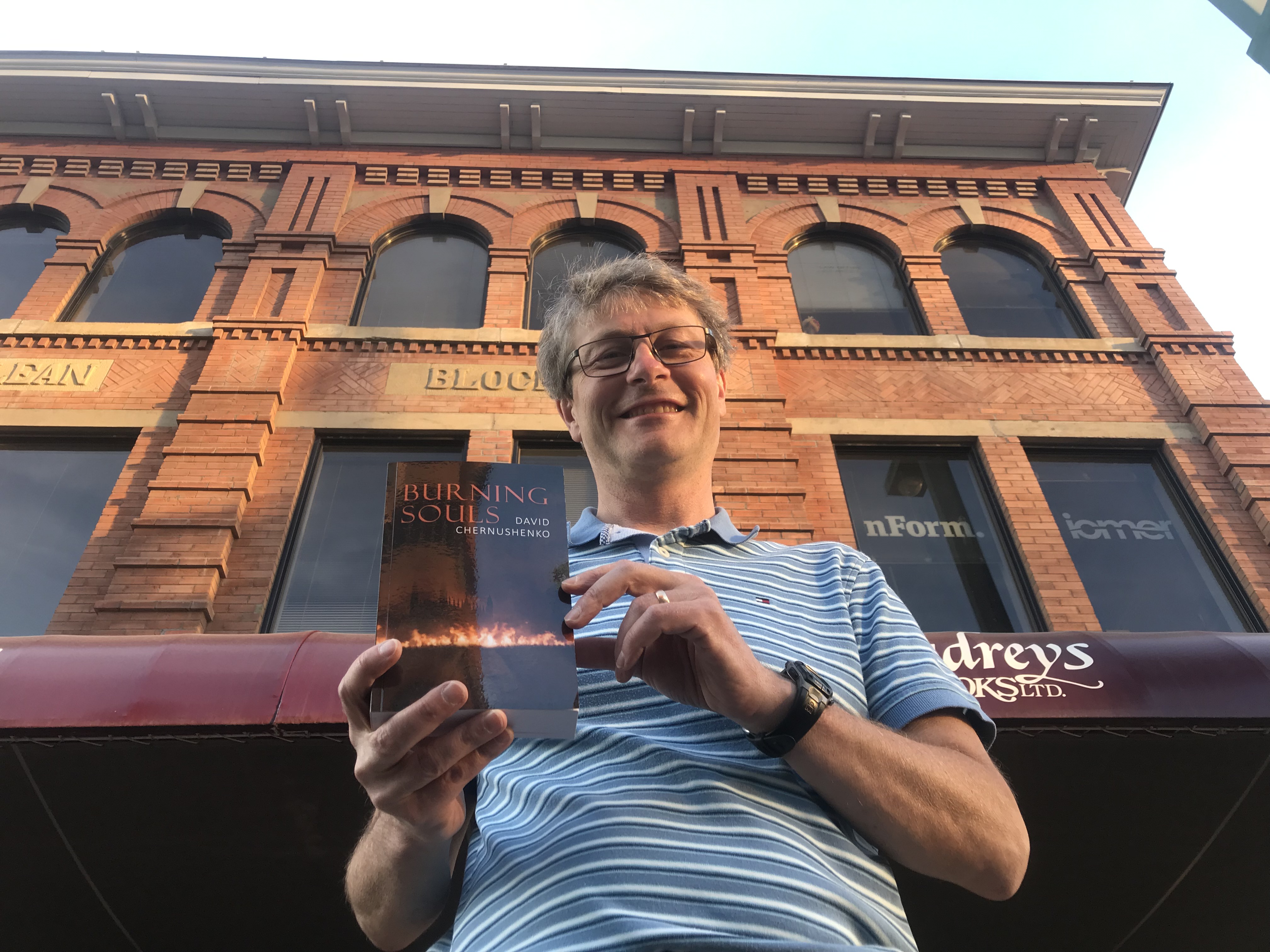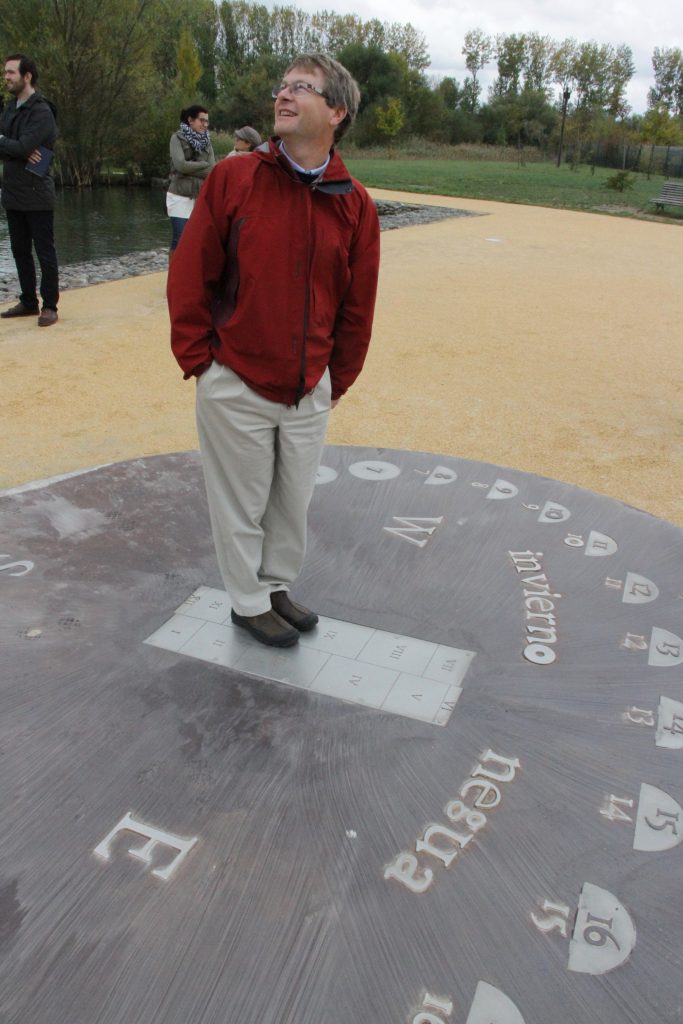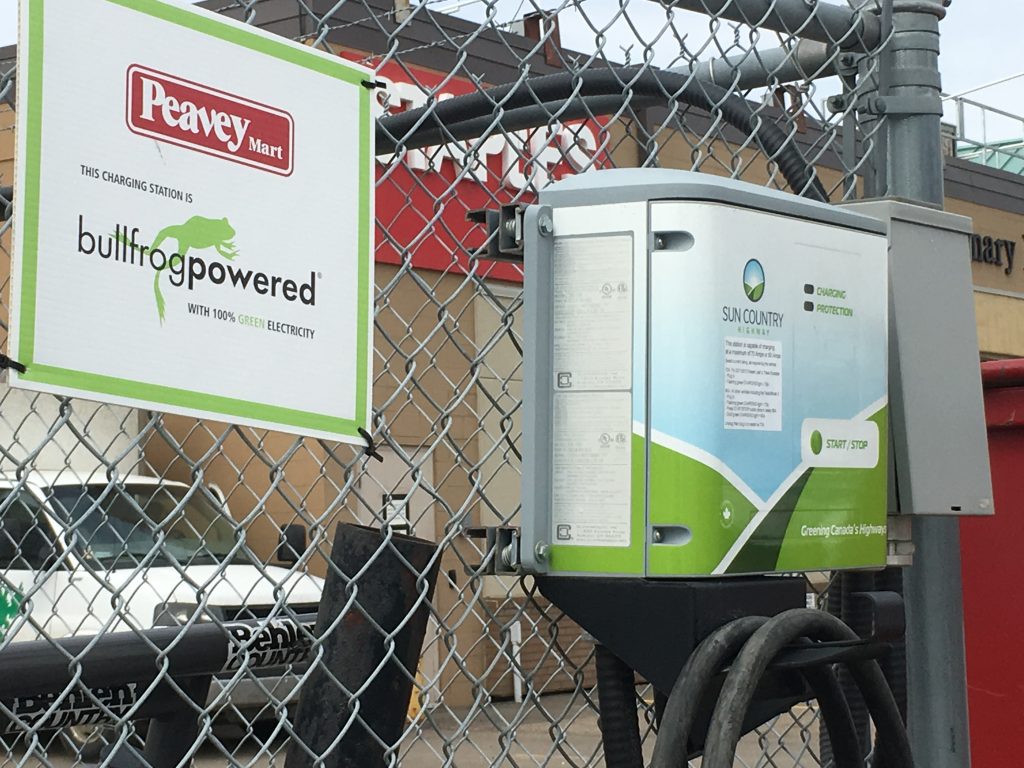By David Dodge and Scott Rollans
David Chernushenko doesn’t mince words. His new novel may be a work of fiction but it’s based on the very real threat climate change poses to humanity. He calls it “climate breakdown” a term coined by British journalist George Monbiot.
“Climate breakdown is truly existential,” Chernushenko says. “And I use that word exactly as it’s meant. It is the existence not of the planet –– the planet will be here and some species will be here –– but it’s the existence of civilized humanity that is at stake here.”

Chernushenko is a filmmaker, former two-term Ottawa city councillor, one of Canada’s most passionate sustainability activists and the author of a new novel, Burning Souls.
Grappling with climate change requires a personal reckoning, insists Chernushenko. “It does lead us to food, and it does lead us to the vehicles we drive, and the way we build our houses. In the end, it all takes us back to this question: is there a more sustainable way of living?”
Over his career, Chernushenko has been an educator, a documentary filmmaker, a provincial and federal Green Party candidate, and a two-term Ottawa city councillor specializing in sustainability. He’s always looking for new strategies to spark action on climate change. “Novelist” is his latest angle.
Fiction firmly rooted in the real world
Despite the overwhelming evidence and consensus on the climate crisis, Chernushenko remains frustrated by the absence of urgency in society at large. “One more time, I felt like I needed to do something really different,” he says. “I had never tried fiction.”
The four “burning souls” in Chernushenko’s novels come from a wide variety of backgrounds.
“I have a white female journalist named Simon Cohen,” says Chernushenko. “And Dr. Sagan Cleveland … a black American who becomes climate scientist. “And, I have Jenny Fung, a female Malaysian a woman who is doing her Ph.D. in engineering—let’s call her Elon Musk or the future Elon Musk.” The fourth main protagonist is Jiro Ebitsubo, a Japanese law student who does what his family wants him to do at first, and then makes a radical career change.”
The book opens with Dr. Sagan Cleveland receiving a science communicators award in 2018, before abruptly flashing forward to 2025, with “Simone alone, in a bed, in the dark, in the south of France, in a very wasted hot dry smoky remnant of a civilized world.”
Chernushenko deliberately chose to set his story in a terrifyingly imminent future. “Some might say, ‘2025, really? Things go all to hell by then? Climate is gonna do that?.’
“And my response is, climate alone won’t do it. But, when you have surging populism, and denial of science, and mass migration, and xenophobia, and fish stock collapses, and bread baskets crop producing areas of the world that are in dire straits … I can go with that list of reinforcing crises that can create a spiral that gets faster and faster and from which it’s very hard to pull out.”
Fake news and harassing journalists
Social media also play a central role in Chernushenko’s plot. “One of my characters is harassed to the point of breakdown and undergoes a dramatic shift,” he says. This character begins a second career and starts down a spiritual path—informed, in part, by Laudato Si, Pope Francis’ encyclical about the care and protection of the Earth.
Chernushenko says the story also touches on many poignant world issues such as “fake news syndrome.” He’s alarmed by the news world’s rapidly declining standards. “We now have so few paid reporters and true investigative journalists doing this work,” says Chernushenko. “And, on top of that, we have elected officials harassing and demeaning and calling into doubt excellent dedicated journalists.”
Chernushenko hastens to reassure readers that Burning Souls weaves a compelling tale. “It’s a story of friendship and integrity awe and courage in a time of social and ecological collapse. And now that’s both got you going, ‘Oh dear.’ And, ‘Oh, great!” he laughs.
The book takes you to some of Chernushenko’s past locales—from England’s Cambridge University to Japan—and touches on many themes that have informed his varied career.

David’s journey began in 1992 at the Earth Summit
Chernushenko’s focus on sustainability took flight in 1992. “One of the really seminal moments in my early career was participating in and helping to organize the Canadian delegation to the Earth Summit in Rio.”
The concept of “sustainable development,” or sustainability as it’s now referred to, was born there in the work of the Brundtland Commission and espoused in a report/manifesto entitled Our Common Future authored by Gro Harlem Brundtland, then Prime Minister of Norway and chair of the commission.
The Rio Summit also produced the Framework Convention on Climate Change that led to the virtually all of the international climate change agreements—as well as the Conferences of the Parties (COP) that have met each year since 1995. The so-called Paris Agreement came out of COP 21 held in Paris. It seeks to keep the global average temperature rise below 2 degrees Celsius.
After his Rio experience, Chernushenko did “a lot of environmental management consulting helping organizations adopt sustainable practices.”
And then, “Where it really got fun for me was when I had this wild idea that the sport and recreation sector – particularly major sports events – needed to go green. “I ended up being one of sort of a handful of people worldwide who worked to green the Olympics.” Chernushenko also wrote a book called Greening the Games.
Politics – from the Green Party to City Councillor
When Ontario’s Green Party first approached him to run in the 2004 provincial election, Chernushenko thought the idea was bonkers.
“When my wife went off to work that morning, we had agreed that, no, I would not run. It just didn’t fit with our plans” recalls Chernushenko. “And when she came home that evening, I was working on designing a brochure and had the registration papers in front of me.
“I thought if I’m not going to do it, if I’m not going to step forward, how can I complain that others aren’t?”
Chernushenko captured a decent share of the vote, and also did respectably when running federally in 2006. Eventually, he spent time as deputy leader of the Green Party of Canada, until he decided he needed a job that would pay the bills.
“At that point, I thought I want to run municipally because this is really where the rubber hits the road. This is where so many of the decisions are taken,” says Chernushenko.
He was first elected to Ottawa City Council in 2010 from a field of seven with 41 per cent of the vote. He took 77 per cent of the vote in 2014. He lost a tight race in 2018.
Chernushenko’s new job allowed him to bring his personal activism into the public sphere. “When you’re an independent councillor and not part of a party, you can say anything you want. And so, I was as much a critic as anything.”

Activist becomes “The Man”
In his second term, Chernushenko took on more of a leadership role. “I was then named as chair of the city’s environment and climate protection committee, at which point you become like cabinet. You can’t go mouthing off about how bad the city is when you are the city.”
With a meaningful seat at the table, Chernushenko was able to see tangible results. “We as a council in Ottawa made real headway in the transportation area, in and in active transportation. We finally got approved and funded light rail in Ottawa and it is about to open.”
Chernushenko also helped transform Ottawa’s Main Street into a vibrant, people-friendly gathering place. Other parts of the city were reinvigorated with the addition of footbridges, bicycle lanes, and traffic calming.
Dancing at the Revolution
While leading the development of Ottawa’s “Energy Evolution” policy, Chernushenko pushed for a target of 100 per cent renewable energy. Although the city’s energy transition strategy is not as ambitious as he hoped, the city is taking steps to reduce greenhouse gas emissions across its operations.
During that period in his career, Chernushenko also tried his hand at documentary filmmaking. Powerful Energy for Everyone (2010) examined the opportunities in renewable energy. Bike City, Great City (2013) explored the benefits of active transportation. “When you design a city that’s better for cycling, it’s a city that’s better for everyone—even drivers,” he explains.
With Burning Souls, Chernushenko is taking a new tack on his life-long journey in search of sustainability. Although the novel raises terrifying and depressing prospects, he hopes it can also inspire and motivate readers. As a novelist, he also hopes to entertain them.
“I’m forgetting exactly who I’m citing, but it’s something like ‘If there won’t be dancing at the revolution I don’t want to go.’ And that’s kind of how I look at this.”


